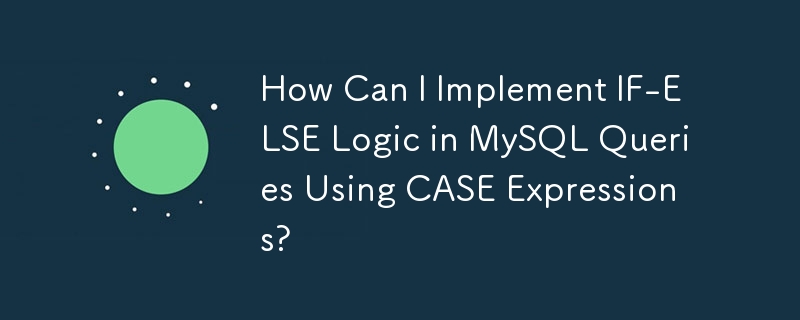

IF ELSE Statements in MySQL Queries
In the realm of database management, MySQL provides a robust set of query capabilities. Among them is the ability to conditionally execute segments of code based on specific conditions. This is where the IF ELSE statement comes into play.
Using a CASE Expression
While MySQL does not directly support IF ELSE statements, there exists a similar construct known as the CASE expression. CASE expressions allow you to define multiple conditions and specify different outcomes based on which condition is met.
To use a CASE expression, you can follow this general syntax:
SELECT col1, col2,
CASE
WHEN condition1 THEN value1
WHEN condition2 THEN value2
...
ELSE default_value
END AS desired_column_name
FROM table_name;Example
Consider the original question, which aimed to assign a value to a variable based on a conditional check:
mysql_query("...(irrelevant code).. IF(action==2&&state==0){state=1}");Using a CASE expression, you can achieve the same result as follows:
SELECT col1, col2,
CASE
WHEN action = 2 AND state = 0 THEN 1
ELSE 0
END AS state
FROM table_name;When executed, this query will return the specified columns, including the state column, which will be populated with a value of 1 if both the action and state conditions are met; otherwise, it will be assigned a value of 0.
By utilizing CASE expressions, you can implement conditional logic in your MySQL queries and manipulate data values based on specific criteria, much like you would with an IF ELSE statement.
The above is the detailed content of How Can I Implement IF-ELSE Logic in MySQL Queries Using CASE Expressions?. For more information, please follow other related articles on the PHP Chinese website!




